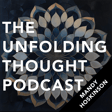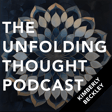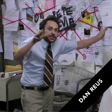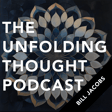
14–Andy Hite – From Broadway to the Boardroom: Empowering Leaders and Teams
In this episode of The Unfolding Thought Podcast, Andy Hite, founder of Scaling Minds, shares his unique journey from a career in musical theater and production to becoming an executive coach for CEOs and leadership teams. Andy’s story is a testament to resilience, creativity, and the power of personal transformation.
We dive into Andy’s experiences with leadership—both good and bad—and how they shaped his approach to coaching. He discusses the psychological and emotional aspects of leadership, the critical role of self-awareness, and how to empower teams to achieve their full potential. Whether you’re leading a small team or a large organization, Andy’s insights on navigating challenges, fostering alignment, and overcoming blind spots will resonate.
Tune in to hear how Andy blends creativity, strategy, and empathy to help leaders thrive in a competitive, ever-changing world.
Mentioned in the Episode:
- The transition from musical theater to executive coaching.
- Insights into empowering leadership and addressing blind spots.
- Tools for fostering alignment and growth within organizations.
- GROW Model
- Immunity to Change X-ray
Links:
Connect with Andy Hite:
- Website: https://www.scalingminds.com
- LinkedIn: https://www.linkedin.com/in/andy-hite/
For more episodes, visit: https://unfoldingthought.com
Join the conversation by emailing Eric: eric@inboundandagile.com



















